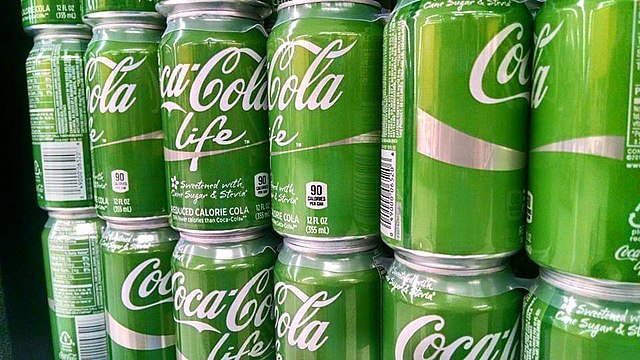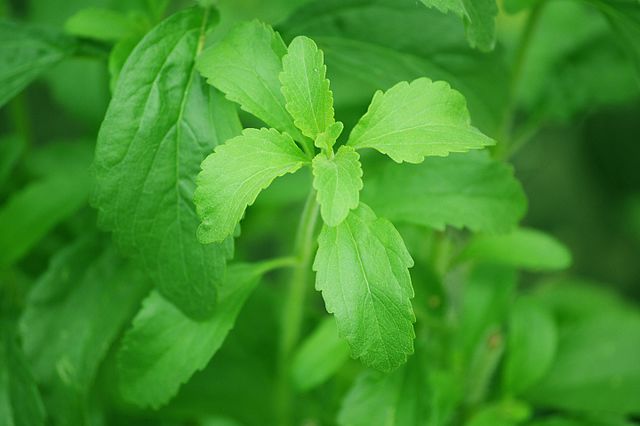Coca-Cola Life was a reduced-calorie version of Coca-Cola introduced in 2013, using a combination of stevia and sugar as sweeteners. It was first released in Argentina and Chile after five years of research together in these countries. The formulation varied by market location, and in some areas the original formulation had been phased out in favor of a zero-calorie version sweetened with stevia only. The drink was discontinued in 2020 as part of the Coca-Cola Company discontinuing underperforming brands.
Coca-Cola Life cans on a public grocery store shelf.
Boxes of 12-pack 12 oz (355 ml) Coca-Cola life on a store shelf in the United States circa April 2019
Stevia is a sweet sugar substitute that is about 50 to 300 times sweeter than sugar. It is extracted from the leaves of Stevia rebaudiana, a plant native to areas of Paraguay and Brazil in the southern Amazon rainforest. The active compounds in stevia are steviol glycosides. Stevia is heat-stable, pH-stable, and not fermentable. Humans cannot metabolize the glycosides in stevia, and therefore it has zero calories. Its taste has a slower onset and longer duration than that of sugar, and at high concentrations some of its extracts may have an aftertaste described as licorice-like or bitter. Stevia is used in sugar- and calorie-reduced food and beverage products as an alternative for variants with sugar.
Stevia rebaudiana



